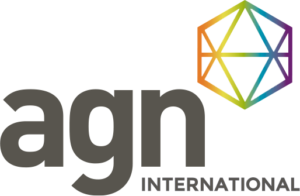To provide the best experiences, we use technologies like cookies to store and/or access device information. Consenting to these technologies will allow us to process data such as browsing behavior or unique IDs on this site. Not consenting or withdrawing consent, may adversely affect certain features and functions.
News from the AGN EMEA Accounting, Auditing & Education Committee (AAEC)
ESRS G1 Business Conduct emphasizes ethical behavior, integrity, and compliance with laws and regulations in all business interactions and operations. But, how important is ESRS G1 Business Conduct in relation to other European Sustainability Reporting Standards (ESRS)?
Within the scope of the ESRS, ESRS E1 Climate Change and ESRS S1 Own Workforce are typically regarded with high importance. The question is; Should ESRS G1 Business Conduct have (at least) the same status?
Based on the alignment of ESRS G1 with crucial aspects of sustainable corporate governance and against the background of the following topics (ESRS G1.2), in my opinion, the affirmative response to this question is “yes”.
- Business ethics and culture
- Combating corruption and bribery
- Management of relations with suppliers (including payment practices)
- Lobbying activities
Overview of the ESRS G1 reporting requirements
ESRS G1 consists of two “Related to ESRS 2” disclosure requirements (GOV-1 and IRO-1) and six additional DRs. These DRs, in turn, contain 51 fundamentally reportable data points. With the exception of “Related to ESRS 2 IRO-1”, all DRs and data points are subject to materiality requirements. They are, therefore, only reportable if the related sustainability aspects have been classified as material in the materiality analysis either from the perspective of “impact materiality” and/or “financial materiality”.
“Related to ESRS 2 IRO-1” DR of ESRS G1
This disclosure requirement is considered “always mandatory” and is therefore not subject to materiality. All companies required to report in accordance with the CSRD must include the related information in their sustainability reporting. In accordance with ESRS G1.6, the procedure within the scope of the materiality analysis must be described with reference to the determination of the material effects, risks and opportunities in connection with the corporate policy (business conduct) – This also includes the disclosure of all relevant criteria used in the process.
Other key disclosure requirements of ESRS G1
In the area of corporate ethics and culture, information must be provided on how the company defines, implements and reviews its ethical principles and codes of conduct. Other key reporting requirements relate to how employee involvement and commitment is promoted and how ethical dilemmas or conflicts are dealt with. It also concerns how the fight against corruption and bribery is ensured.
With regard to relationships with suppliers, the objective of ESRS G1 is to create transparency and accountability of the reporting entity in the upstream value chain. In particular, information on the management of relationships with suppliers must be disclosed. The disclosures on the company’s payment practices, particularly with regard to late payments to small and medium-sized enterprises (SMEs), are of particular relevance from the perspective of the stakeholders concerned. Further disclosure requirements relate to the selection process of suppliers from a sustainability perspective.
The third material topic area relates to the provision of information on the following:
- Company activities and obligations related to the exercise of its political influence
- Description of the nature and purpose of any lobbying activities
- Assurance and monitoring related to compliance with applicable laws and regulations
From a lived culture of values to audit-proof governance structures
Within the scope of the ESRS G1 reporting requirements, companies can, for example, draw on existing guidelines in the procurement area and on risk and complaint management systems that have already been implemented. However, particularly in the area of owner-managed SMEs, it will also be a question of underpinning the historically grown and lived value-oriented corporate culture (in the sense of “grandfathering”) with appropriately documented and audit-proof processes and transferring them into strategic governance structures.
Should you ever lose track of the big picture, my colleagues and I from the AGN EMEA Accounting, Auditing & Education Committee (AAEC) will be happy to help and guide you safely through the IFRS and CSR jungle. As a member of AGN International, you can use the AGN AAEC Helpline at any time or contact me by email at carsten.ernst@wirtschaftstreuhand.de or by mobile phone at +49 173 8710322.
Happy accounting and stay sustainable,
Carsten
 Carsten Ernst Managing Partner Wirtschafts Treuhand Group Stuttgart, Germany | – Expert in financial (IFRS) and sustainability (ESRS and GRI) reporting – Audit of financial and sustainability reports in accordance with ISAs – Member of the following AGN bodies: – EMEA Board of Directors (Chairman) – EMEA AAEC Accounting, Auditing and Education Committee (Member) |





